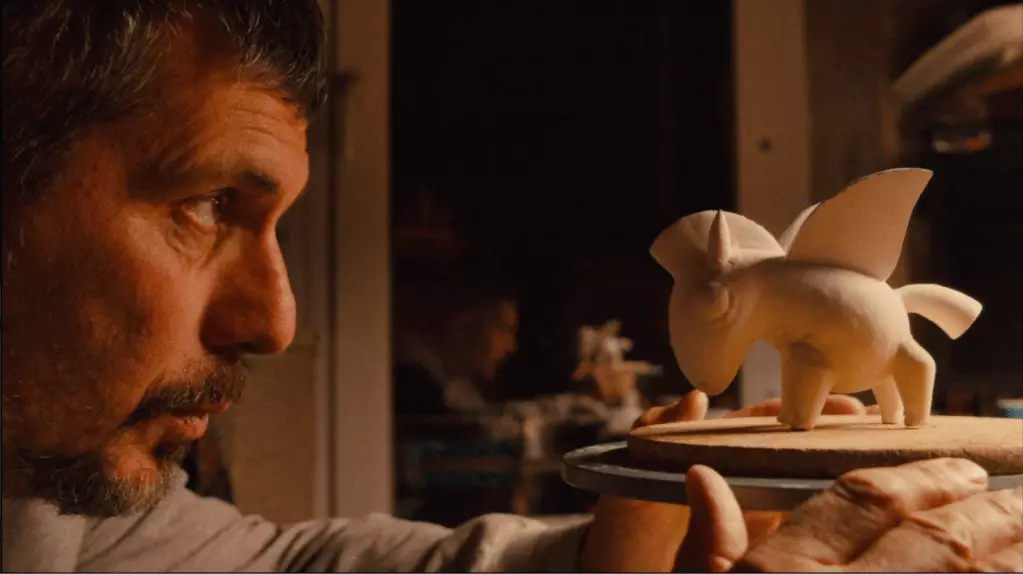In a world shadowed by conflict, the recent documentary “Porcelain War” boldly illustrates that artistry can overpower aggression. Directed by Brendan Bellomo and Slava Leontyev, this Oscar-nominated film delves into the heart of Ukraine amidst its ongoing struggle against Russian invasion. Through the lens of Leontyev, a Ukrainian artist who chose creativity over combat, the documentary presents a narrative where art is not merely a form of expression but a powerful weapon against oppression. The poignant metaphor of Ukraine being “like porcelain”—fragile yet indestructible—resonates deeply, encapsulating the national spirit imbued within its people and their cultural heritage.
Leontyev’s assertion that the camera can serve as a mightier tool than a rifle is a striking revelation within the film. This sentiment echoes throughout the documentary, suggesting that art has the capacity to convey emotions and articulate resistance where violence may fail. Through engaging with audiences, both virtually and in person, the filmmakers emphasize not only the importance of their work but also the broader implications of art in warfare. The virtual Q&A with acclaimed filmmaker Guillermo del Toro highlights this theme, as Leontyev reveals the transformation that comes when one utilizes art as a medium for survival and resilience.
Del Toro’s passionate endorsement of “Porcelain War” also serves as a clarion call to protect the intrinsic value of art in contemporary society. His warning about the potential devaluation of artistic expression in increasingly turbulent times resonates in today’s climate where political upheaval often sidelines the importance of cultural endeavors. Art can often be dismissed as impractical or irrelevant, yet del Toro and the filmmakers challenge this perception by positioning art alongside the very essence of resistance. This assertion invites a broader dialogue about the role of creativity in generating hope and fostering unity in times of turmoil.
The backdrop of political strife extends past the borders of Ukraine, influencing global conversations surrounding the arts. With the recent developments in the Kennedy Center for the Performing Arts, where political control seems to overshadow artistic integrity, del Toro’s reflections ring true. They underscore the necessity for artists to unite and fight for the preservation of their craft against external threats. It is imperative that artists and supporters alike recognize the interconnectedness of art and activism, as they strive for a future where both can flourish unencumbered.
As “Porcelain War” gains traction in the awards circuit, the team behind it remains devoted to furthering its message. The planned virtual and in-person events reveal a concerted effort to promote dialogue surrounding the film’s themes while galvanizing support for Ukraine’s plight. Esteemed personalities like Chris Columbus, Rashida Jones, and Julie Taymor rally behind this project, demonstrating collective strength through artistic advocacy. In a world where turmoil often breeds despair, “Porcelain War” embodies the enduring belief that art can ignite hope and catalyze resistance, proving that while nations may be fragile, their spirit is ultimately unbreakable.


Leave a Reply